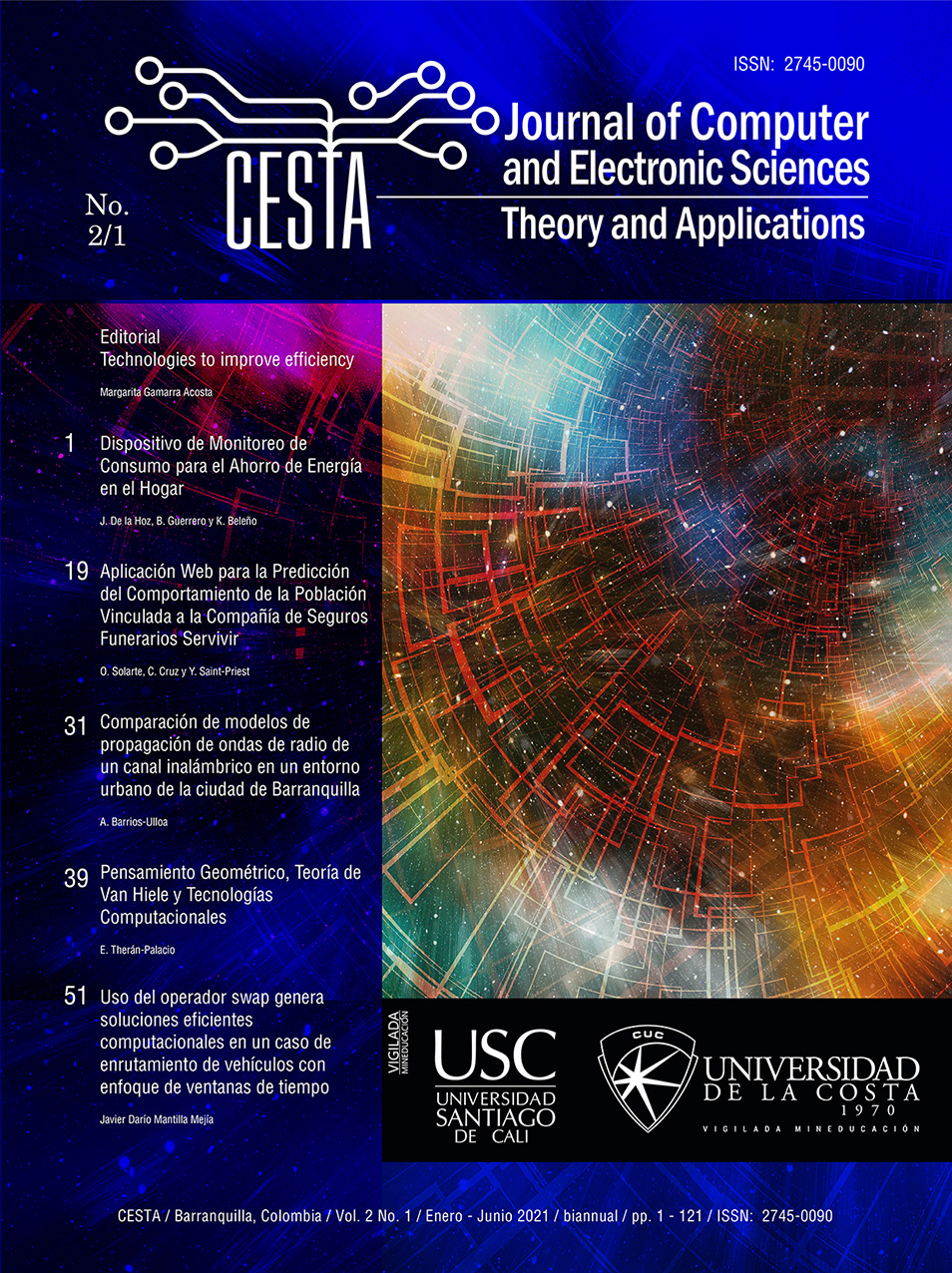Improvement through the use of the swap algorithm in a VRPTW case for 300 clients, generates efficient computational times
DOI:
https://doi.org/10.17981/cesta.02.01.2021.05Keywords:
Aplicaciones VRP; Heurística; Matriz de Ahorro; Optimización Combinatoria; VRPTW.Abstract
Introduction: Vehicle routing scheduling with service fulfillment is a necessity for logistics companies seeking their competitive advantage. Objective: The objective of the following document is to determine the scheduling at the minimum cost of vehicle routing for a homogeneous fleet, complying with time windows. Method: Logistics costs, including the cost of operating vehicle routing, are a fundamental part of the decrease in costs, a direct increase in profits in companies, which is accompanied by creating a competitive advantage. The mathematical model used and the development of the combinatorial optimization algorithm for a VRPTW are exposed through the use of a savings matrix and swap heuristics. Results: The savings algorithm establishes the initial construction phase based on the minimum distance, and the swap algorithm performs very fast exchanges through 12 interactions for a case of 300 clients, seeking to improve through the reduction of downtime, achieving savings of the total cost of 71.41% over the initial cost of the savings algorithm. Conclusions: For calculations of CVRPTW cases of 300 nodes, the swap algorithm achieves computational times of less than 30 seconds.
Downloads
Published
How to Cite
Issue
Section
License
Los artículos publicados son de exclusiva responsabilidad de sus autores y no reflejan necesariamente las opiniones del comité editorial.
La Revista CESTA respeta los derechos morales de sus autores, los cuales ceden al comité editorial los derechos patrimoniales del material publicado. A su vez, los autores informan que el presente trabajo es inédito y no ha sido publicado anteriormente.
Todos los artículos están bajo una Licencia Creative Commons Atribución-NoComercial-SinDerivadas 4.0 Internacional.



 English
English
 Español (España)
Español (España)






